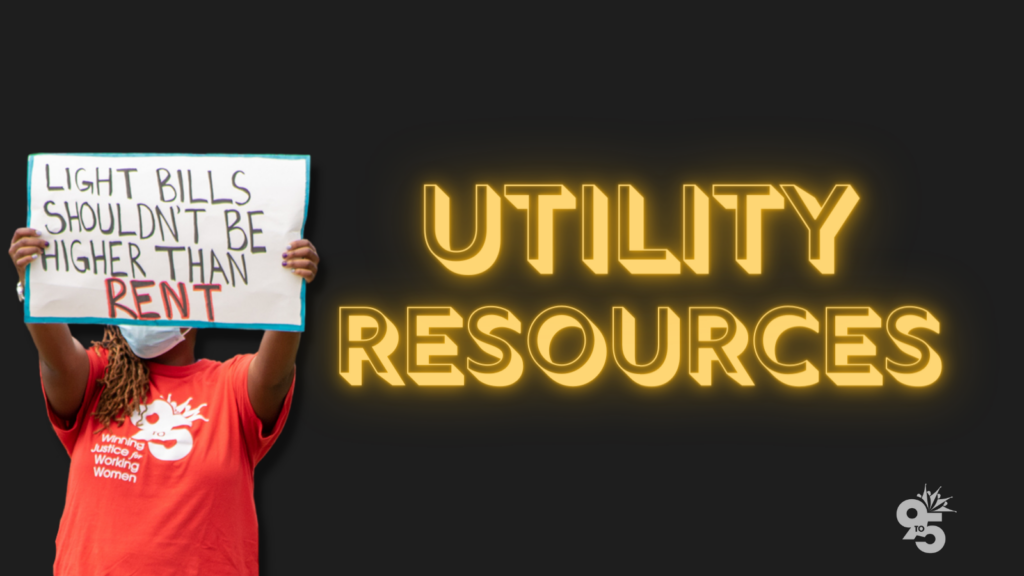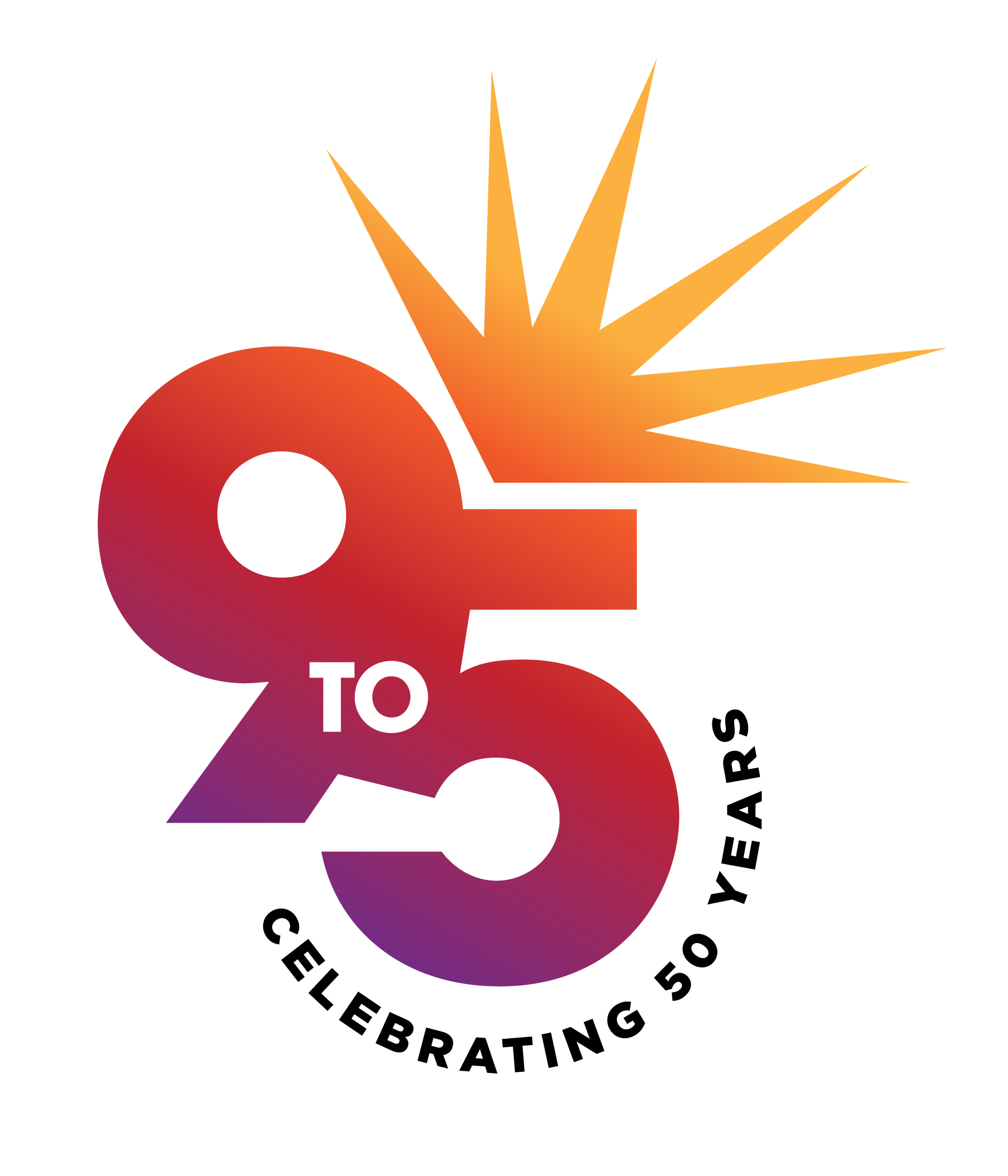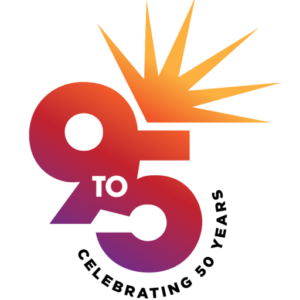
The cost of utilities across the country are skyrocketing, and combined with a housing crisis and inflation, our families’ paychecks are having to stretch even farther than they have before. No family should have to choose between heating their home and other necessities like medicine, groceries, and rent.
We’ve compiled a list of resources, nationally and state-specific, that may be able to help working families pay their utility or other bills.
General and National
Community Action Partnership
202-265-7546
Community Action changes people’s lives, embodies the spirit of hope, improves communities, and makes America a better place to live. We care about the entire community, and we are dedicated to helping people help themselves and each other.
Click here and search for your location to find your closest CAP
National Energy Assistance Referral (NEAR) Project
866-674-6327
By emailing energyassistance@ncat.org, you will access the LIHEAP Clearinghouse’s National Energy Assistance Referral (NEAR) project. NEAR is a free service for persons who want information on where to apply for the Low Income Home Energy Assistance Program (LIHEAP), which may pay a portion of the energy bills of eligible low-income persons.
United Way 2-1-1 Information Line
Call 2-1-1 for help with food, housing, employment, healthcare, counseling and more.
U.S. Department of Housing and Urban Development
202-708-1112
HUDs mission is to create strong, sustainable, inclusive communities and quality affordable homes for all. HUD may be able to provide rental assistance.
Benefits.gov
1-800-333-4636
This government website lists utility and energy assistance programs, organized by state, including application information.
Salvation Army
The Salvation Army may offer short term assistance for basic needs. The amount and type of aid will vary by location. Assistance provided to families includes food, rental assistance, clothing and funds for paying utility and heating bills.
Catholic Charities
703-549-1390
Catholic Charities USA (CCUSA) Catholic Charities agencies provide services to people in need through a network of local offices nationwide. Several of our programs are able to work with families and individuals at-risk of eviction by helping provide funds for short-term financial assistance with overdue bills.
Colorado
Energy Outreach Colorado
1-866-HEAT-HELP (1-866-432-8435)
https://www.energyoutreach.org/find-agency/
We provide bill payment assistance to households across Colorado who are behind on their energy bill and are at risk of not having home energy. Payments are made directly to a local utility or fuel company. Bill payment assistance is provided through our network of local resource centers, faith-based organizations, healthcare providers and social services agencies.
Colorado Low Income Home Energy Assistance Program
The Colorado Low-income Energy Assistance Program (LEAP) is a federally funded program that helps eligible hard-working Colorado families, seniors and individuals pay a portion of their winter home heating costs. Our goal is to help bring warmth, comfort and safety to your home and family by assisting with heating costs. The LEAP program works to keep our communities warm during the winter (November through April) by providing assistance with heating costs, equipment repair and/or replacement of inoperable heating tools. While the program is not intended to pay the entire cost of home heating, we aim to help alleviate some of the burdens that come with Colorado’s colder months.
The Crisis Intervention Program
1-855-4-MY-HEAT (1-855-469-4328)
The Crisis Intervention Program operates year-round and provides assistance with the repair or replacement of the home’s primary heating system such as a furnace or wood-burning stove.
Colorado also offers a rebate of property tax, rent and heat expenses to low-income seniors and disabled persons. Known as the Property Tax/Rent/Heat Credit (PTC) rebate, the maximum property tax rebate is $660 and the maximum heat expenses rebate is $192. The Colorado Department of Revenue administers the rebate.
Wisconsin
Wisconsin Home Energy Assistance Program
Wisconsin’s Division of Energy Services oversees the Wisconsin Home Energy Assistance Program (WHEAP). This includes the federally-funded Low Income Home Energy Assistance Program (LIHEAP) and the Public Benefits Energy Assistance Program. WHEAP provides financial assistance to help eligible households pay a portion of their heating and electric energy costs. Eligible households may receive a benefit payment once per heating season (October 1 through May 15), and crisis assistance funds and help for non-operating furnaces and heating systems may also be available. The amount of the benefit payment depends on household size, income level, and energy costs.
Keep Wisconsin Warm/Cool Fund
The Keep Wisconsin Warm/Cool fund is a statewide non-profit charitable effort that was established in 1996 to keep the heat and power on for thousands of Wisconsinites most vulnerable in crisis. Through public, private and community partnerships, KWW/CF provides preventative services and the financial assistance necessary to alleviate potential life-threatening energy-related emergencies during Wisconsin’s harsh winters and blistering hot summers.
Georgia
Low Income Home Energy Assistance Program
The Georgia Low Income Home Energy Assistance Program (LIHEAP), is a Federally-funded program that helps low-income households with their home energy bills. This assistance can reduce the risk of health and safety problems such as illness, fire, or disconnection. The Georgia LIHEAP program may be able to offer you one or more of the following types of assistance:
- Energy Bill payment assistance.
- Energy crisis assistance to households experiencing heating or cooling emergencies that are life threatening
- Provide long-term, low-cost residential weatherization assistance
Heating Energy Assistance Team. Inc.
HEAT’s fund distribution begins in November for senior citizens (age 65 and older) and the medically homebound, and opens to the general public during December. If you have a disconnection notice or need your home heating service restored, view the link below to see if you are eligible to apply for funds.
Georgia Community Action Association
There are twenty (20) Community Action Agencies in the State of Georgia, capable of serving all 159 counties in the State. The Federal, State and local resources currently managed by Community Action Agencies in Georgia include such services as Head Start, employability services, emergency assistance, transportation, home weatherization, Low Income Home Energy Assistance Program (LIHEAP), and case management.

